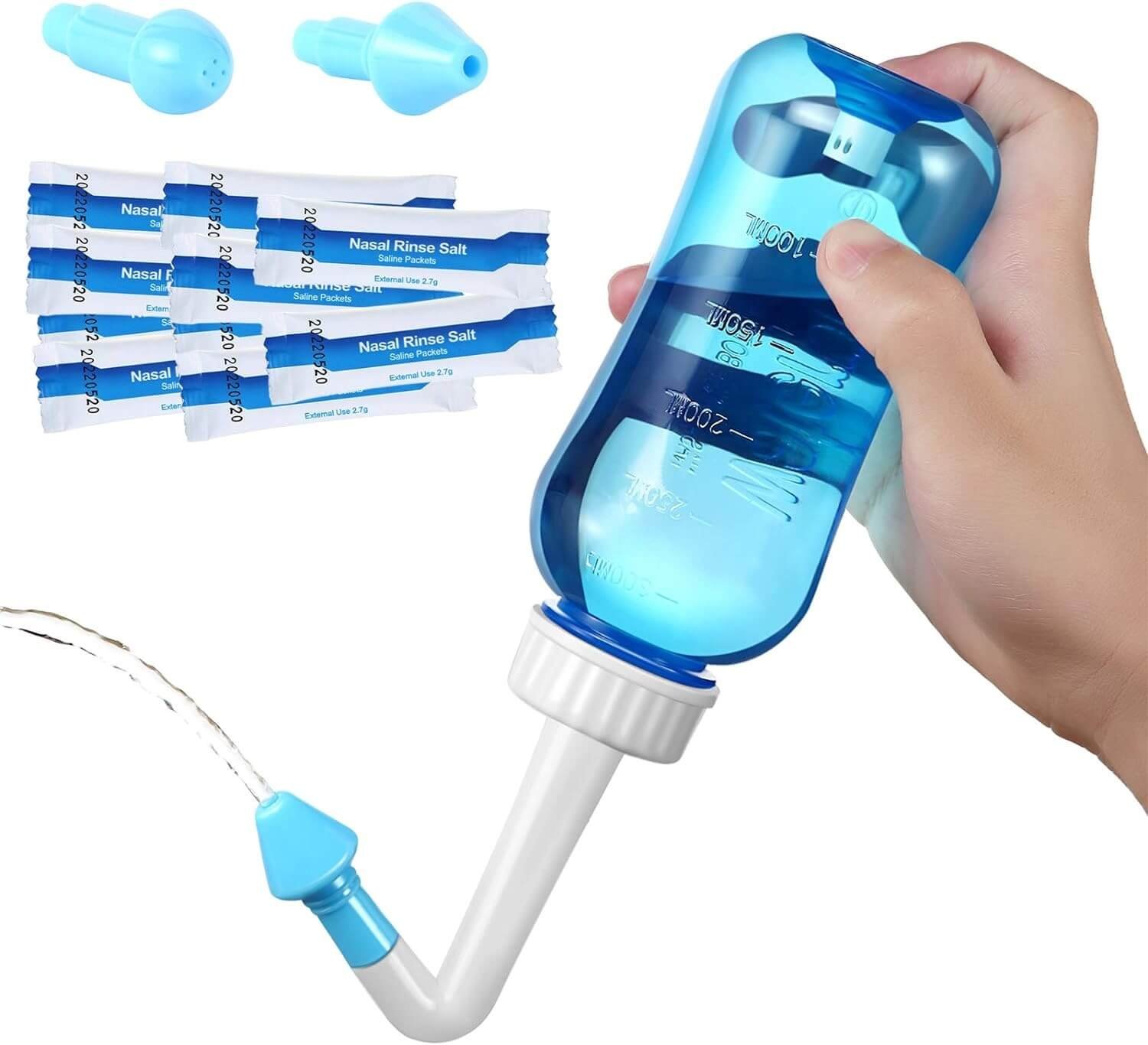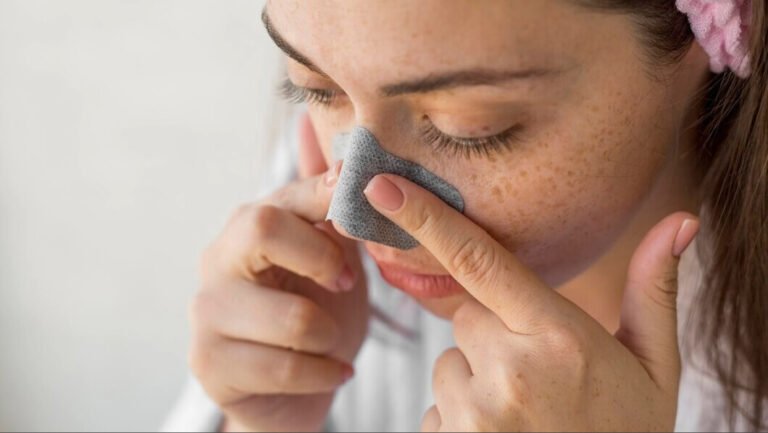Neti Pots Benefits And Best Practices
Have you ever heard of a Neti Pot and wondered what it is?
In this article, we will explore the definition and origins of Neti Pots and its numerous benefits in relieving sinus congestion and allergies.
We will also provide step-by-step instructions and safety precautions for using a Neti Pot effectively.
Learn how to choose the right Neti Pot for your needs and compare Neti Pots to alternative nasal irrigation methods.
Discover the benefits and best practices of using a Neti Pot!
What is a Neti Pot?
A Neti pot is a nasal irrigation device used for nasal cleansing. This procedure entails gently pouring a saline solution into one nostril, allowing it to flow through the nasal passages and exit through the other nostril. The process effectively cleanses the nasal cavity, contributing to maintaining nasal health.
Definition and Origins
The Neti pot, an implement traditionally employed in nasal irrigation, originates in ancient Ayurvedic traditions in India. For centuries, it has been utilized to cleanse the nasal cavity of mucus and debris.
Historically, the Neti pot was fashioned from materials such as clay, copper, or brass, which is emblematic of the cultural significance and holistic approach to health in Ayurveda. As its efficacy extended beyond the confines of the Indian subcontinent, the design of the Neti pot underwent modifications to incorporate user-friendly characteristics.
In contemporary times, modern Neti pots are predominantly constructed from ceramic or plastic, featuring ergonomic shapes and spouts to enhance usability. This progression in design has rendered nasal irrigation more accessible and appealing to a broader demographic, thus contributing to its prevalence in current wellness regimens.
Benefits of Using a Neti Pot
Utilizing a Neti pot can provide substantial advantages to individuals experiencing sinus congestion and allergies. It effectively facilitates the removal of mucus and allergens from the nasal passages, thereby promoting improved breathing.
Relieving Sinus Congestion and Allergies
Nasal irrigation with a Neti pot offers immediate relief for sinus congestion and allergies. It utilizes a saline solution to eliminate irritants and mucus from the nasal passages. This process aids in clearing the nasal passages, facilitating improved breathing and decreased inflammation.
Research published in the American Journal of Rhinology has indicated that consistent nasal irrigation can ameliorate chronic sinusitis and allergic rhinitis symptoms. The Mayo Clinic advocates for nasal irrigation as a safe and efficacious method to manage nasal congestion and allergy symptoms. By upholding healthy nasal passages through irrigation, individuals can potentially reduce the frequency and intensity of sinus infections and allergic reactions.
Best Practices for Using a Neti Pot
Adherence to best practices is imperative to optimizing safety and efficacy in using a Neti pot. This includes using a suitably prepared saline solution and verifying the safety of the water source to mitigate potential health hazards.
Step-by-Step Instructions
Commence by correctly sanitizing the Neti pot and preparing a saline solution by combining non-iodized salt with distilled or previously boiled water.
After verifying the Neti pot’s cleanliness, fill it with the prepared saline solution. With utmost care, tilt your head to the side over a sink and insert the Neti pot’s spout into one nostril. Slowly administer the saline solution into the nostril, facilitating its passage and expulsion from the other nostril. Maintain respiration through your mouth to prevent inhalation of the solution. Transition to the alternate nostril and replicate the procedure.
Post-utilization, meticulously cleanse the pot utilizing soap and water and allow for air drying to deter bacterial proliferation.
Safety Precautions
When using a Neti pot, utilizing a safe water source, such as distilled, sterile, or previously boiled water, is imperative. This precaution is necessary to avoid the potential risks of serious infections and health complications.
The dangers of using tap water in a Neti pot include exposure to harmful microorganisms, such as Naegleria fowleri, a brain-eating amoeba. This organism thrives in warm freshwater environments and can lead to a rare yet severe infection if it gains access to the nasal passages.
To mitigate these risks, healthcare professionals and regulatory agencies like the U.S. Food and Drug Administration advise strict adherence to safety protocols when employing Neti pots. It is crucial to underscore the significance of using water that has undergone proper treatment or preparation to uphold optimal health and well-being standards.
Choosing the Right Neti Pot
Selecting the appropriate Neti pot requires careful consideration of different types and features to guarantee that it aligns with your nasal irrigation requirements and preferences under the guidance of a healthcare professional.
Types of Neti Pots and Their Features
Neti pots are available in various materials, such as ceramic, plastic, and stainless steel, each offering distinct characteristics that cater to diverse user preferences and requirements.
Ceramic Neti pots are lauded for their aesthetic appeal and resilience, often regarded as the most visually appealing option due to their ornamental designs. However, ceramic pots may be fragile and susceptible to breakage if mishandled.
In contrast, plastic Neti pots are lightweight and cost-effective, making them an optimal choice for frequent travelers or individuals seeking a budget-friendly option.
Stainless steel Neti pots are known for their durability and ease of maintenance, rendering them a favored selection among individuals who prioritize cleanliness and seek a long-lasting solution.
Alternative Nasal Irrigation Methods
While the Neti pot remains a prevalent technique for nasal irrigation, various alternative methods can similarly alleviate nasal congestion and uphold sinus health.
Comparing Neti Pots to Other Options
Compared to other nasal irrigation options, such as squeeze bottles and electronic irrigators, Neti pots present distinct advantages in terms of convenience, cost, and efficacy in addressing congestion.
Neti pots are particularly favored by individuals seeking a natural, drug-free approach to sinus relief. Users highly value their simplicity, as they solely necessitate a saline solution and are easy to maintain.
Contrastingly, squeeze bottles provide enhanced control over the irrigation flow and pressure, making them suitable for users with specific preferences.
On the other hand, despite being more expensive, electronic irrigators may be preferred by those desiring additional features such as adjustable temperature settings. The selection among these tools often hinges on personal comfort levels and individual health needs.
Frequently Asked Questions
What is a neti pot?
A neti pot is a small, teapot-like device used for nasal irrigation. It is traditionally used in Ayurvedic medicine to cleanse the nasal passages and sinuses.
How does a neti pot work?
A neti pot works by pouring a saline solution through one nostril and allowing it to drain out the other. This helps to remove mucus, allergens, and other pollutants from the nasal passages.
What are the benefits of using a neti pot?
Neti pots can relieve allergies, sinus infections, and colds by clearing congestion and reducing inflammation in the nasal passages. It may also help with snoring and improve overall nasal health.
Are there any risks associated with using a neti pot?
While generally safe, improper use of a neti pot can lead to infections or irritation in the nasal passages. It is important to use distilled or sterile water and to follow proper cleaning and usage instructions.
How often should I use a Neti pot?
It is recommended to use a Neti pot once or twice a day, depending on your needs. However, listening to your body and adjusting usage is important. It is also essential to take breaks between uses to prevent over-irrigation.
Can anyone use a Neti pot?
While generally safe, it is essential to consult with a healthcare professional before using a neti pot, especially if you have a history of nasal or sinus issues. Neti pots should also not be used by individuals with a deviated septum or frequent nosebleeds.





